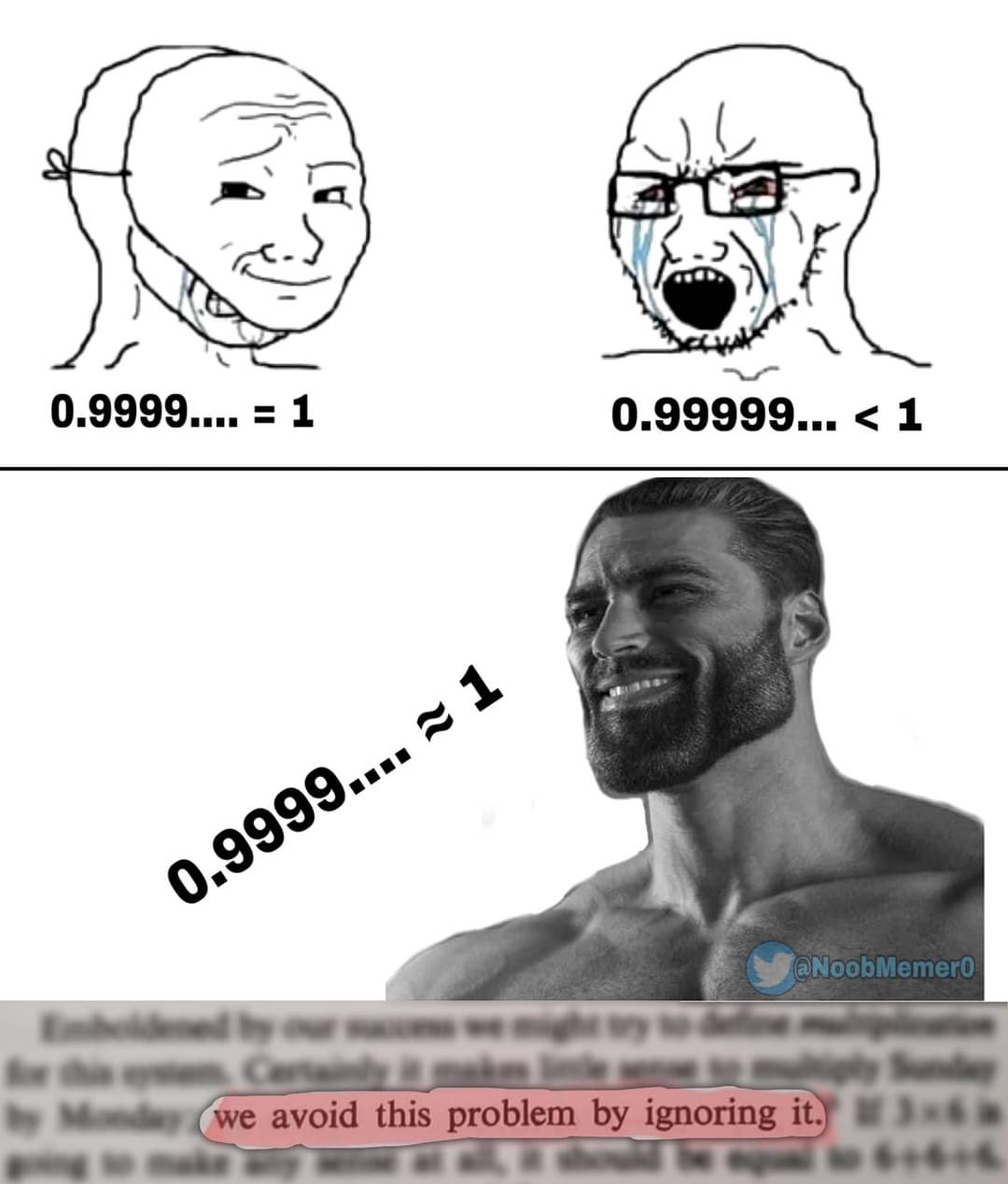this post was submitted on 27 Jun 2024
818 points (95.2% liked)
Science Memes
10923 readers
2136 users here now
Welcome to c/science_memes @ Mander.xyz!
A place for majestic STEMLORD peacocking, as well as memes about the realities of working in a lab.

Rules
- Don't throw mud. Behave like an intellectual and remember the human.
- Keep it rooted (on topic).
- No spam.
- Infographics welcome, get schooled.
This is a science community. We use the Dawkins definition of meme.
Research Committee
Other Mander Communities
Science and Research
Biology and Life Sciences
- [email protected]
- [email protected]
- [email protected]
- [email protected]
- [email protected]
- [email protected]
- [email protected]
- [email protected]
- [email protected]
- [email protected]
- [email protected]
- [email protected]
- [email protected]
- [email protected]
- [email protected]
- [email protected]
- [email protected]
- [email protected]
- [email protected]
- [email protected]
- [email protected]
- [email protected]
- [email protected]
- [email protected]
- !reptiles and [email protected]
Physical Sciences
- [email protected]
- [email protected]
- [email protected]
- [email protected]
- [email protected]
- [email protected]
- [email protected]
- [email protected]
- [email protected]
Humanities and Social Sciences
Practical and Applied Sciences
- !exercise-and [email protected]
- [email protected]
- !self [email protected]
- [email protected]
- [email protected]
- [email protected]
Memes
Miscellaneous
founded 2 years ago
MODERATORS
you are viewing a single comment's thread
view the rest of the comments
view the rest of the comments

It isn't. It's convenient. Toss it if you don't want to use it. What's not an option though is to use it incorrectly, and that would be insisting that 0.999... /= 1, because that doesn't make any sense.
A notational system doesn't get to say "well I like to do numbers this way, let's break all the axioms or arithmetic". If you say that 0.333... = 1/3, then it necessarily follows that 0.999... = 1. Forget about "but how do I calculate that" think about "does multiplying the same number by the same number yield the same result".
Repeating decimals aren't apart from decimal arithmetic. They're a necessary part of it. If you didn't learn 0.999... = 1, you did not learn decimal arithmetic. And with "necessary" I mean necessary: Any positional system that supports expressing rational numbers will have repeating digits. It's the trade-off you make, by fixing the divisor (10 in our case), to make numbers easily comparable by size, because no number can divide any number cleanly because there's an infinite number of primes. Quick, which is the bigger number: 38/127 or 39/131.
Any notational system has its awkward spots. You will not get around awkward spots. Decimal notation has quite few of them, certainly fewer than Roman numerals where being able to do long division earned you a Ph.D. If you can come up with something better be my guest, I already linked you to a starting point.